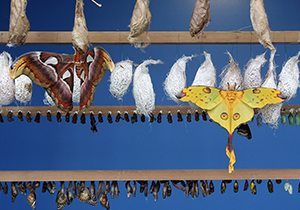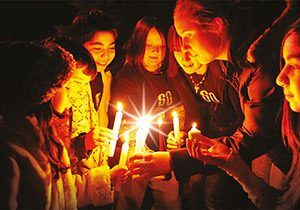
Spelling resource: Squares word scramble
Practise spelling words by thinking about common word structures
This primary resource gives children an opportunity to practise spelling words by thinking about common structures.
Pupils will be challenged to consider how they spell words through structuring letters and graphemes in our National Geographic Kids’ English primary resource sheet.
The teaching resource can be used in pairs or study group tasks for working out solutions together, as a printed handout for each pupil to work on individually, or for display on the interactive whiteboard for class discussion.
Activity: Ask children to complete the puzzles on the page, either in groups, pairs, or with help from their parents; as homework.
N.B. The following information for mapping the resource documents to the school curriculum is specifically tailored to the English National Curriculum and Scottish Curriculum for Excellence. We are currently working to bring specifically tailored curriculum resource links for our other territories; including South Africa, Australia and New Zealand. If you have any queries about our upcoming curriculum resource links, please email: schools@ngkids.co.uk
This English primary resource assists with teaching the following Key Stage 1 English (Year 1) objectives from the National Curriculum:
Pupils should be taught to: name the letters of the alphabet:
- naming the letters of the alphabet in order
- using letter names to distinguish between alternative spellings of the same sound
Pupils should be taught to:
- apply simple spelling rules and guidance, as listed in English Appendix 1
National Curriculum Key Stage 1 English (Year 2) objective:
Pupils should be taught to: spell by:
- segmenting spoken words into phonemes and representing these by graphemes, spelling many correctly
- learning new ways of spelling phonemes for which one or more spellings are already known, and learn some words with each spelling, including a few common homophones
National Curriculum Lower Key Stage 2 English (Year 3 & 4) objective:
Pupils should be taught to:
- spell further homophones
- spell words that are often misspelt (English Appendix 1)
- use the first two or three letters of a word to check its spelling in a dictionary
National Curriculum Upper Key Stage 2 English (Year 5 & 6) objective:
Pupils should be taught to:
- continue to distinguish between homophones and other words which are often confused
- use knowledge of morphology and etymology in spelling and understand that the spelling of some words needs to be learnt specifically, as listed in English Appendix 1
- use dictionaries to check the spelling and meaning of words
- use the first three or four letters of a word to check spelling, meaning or both of these in a dictionary
This English primary resource assists with teaching the following Literacy and English Early level objectives from the Scottish Curriculum for Excellence:
- I explore sounds, letters and words, discovering how they work together, and I can use what I learn to help me as I read or write.
Scottish Curriculum for Excellence First level Literacy and English objectives:
- I can spell the most commonly-used words, using my knowledge of letter patterns and spelling rules and use resources to help me spell tricky or unfamiliar words.
Scottish Curriculum for Excellence Second level Literacy and English objectives:
- I can spell most of the words I need to communicate, using spelling rules, specialist vocabulary, self-correction techniques and a range of resources.
Scottish Curriculum for Excellence Third level Literacy and English objectives:
- I can use a range of strategies and resources and spell most of the words I need to use, including specialist vocabulary, and ensure that my spelling is accurate.
Scottish Curriculum for Excellence Fourth level Literacy and English objectives:
- I can use a range of strategies and resources independently and ensure that my spelling, including specialist vocabulary, is accurate.
Download primary resource
More Like

The butterfly life cycle!

Turn your lights out for Earth Hour!

Easy frozen yoghurt recipe!









LEAVE A COMMENT
THANK YOU
Your comment will be checked and approved shortly.
WELL DONE,
YOUR COMMENT
HAS BEEN ADDED!
COMMENTS
CUSTOMIZE YOUR AVATAR